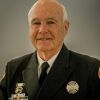There are hundreds of books that list the most frequently sought after traits in a successful leader. Traits such as integrity, honesty, knowledge and experience are prime examples.
However, please don’t be confused with the dozens of other books that profess leadership to be a collection of the latest buzzwords; leadership is and always will be hard work that requires preparation, skill and understanding.
As 2014 comes to a close, some volunteer fire departments will be electing a new slate of officers for the coming year. Combination and career departments may see retirements, promotions, lateral transfers to another station or district, or some moving to other departments as part of an individual’s upward mobility tract.
In any of these instances, what should you look for in your new leadership? Or better yet, what traits do you need to become an effective fire service leader?
No popularity contest
First and foremost, leadership should not be a popularity contest. Departments that elect individuals to officer positions should have established criteria for each position that a candidate must meet before being eligible to run.
A serious candidate should not only exceed those criteria but also be willing to take additional courses to prepare the leadership role. Electing someone on their personality alone may be the worst way to choose a department’s new leadership.
Not long ago, I heard of a candidate for chief of a large volunteer department who promised an officer’s position to six or more firefighters in exchange for their support. There were, however, only three company officer positions up for appointment.
You can imagine how betrayed the three not chosen to become an officer must have felt, as well as the fallout that occurred within the department regarding the new chief’s credibility. If nothing else, this example should give firefighters cause to carefully weigh both the selection process and the character of their leadership candidates.
No magic leadership dust
Contrary to popular belief, there are no mystical powers bestowed on a firefighter when he or she pins on the first bugle. Nothing magically happens to enlighten those individuals as they pin on one, two, three of four more bugles.
In truth, leadership is and should be hard to obtain. Whether you are looking to be an officer in a volunteer, combination or career department, the decisions you make will change the lives of everyone you have contact with at a fire, cardiac arrest, auto accident, hazardous material incident, MCI, or rescue — this includes firefighters, families, residents and elected officials.
Being an officer requires more than becoming an officer. If you stop and think, these are life-changing decisions that require your preparation through education, training and experience.
How have you prepared yourself for a leadership role?
Training is only one facet of the equation. Educating yourself beyond the training requirements means you have done both self-study and attended formal classes that teach the science, theory and reason for what are considered the best practices to assure the safety of your personnel and the community you serve.
Get mentored
Perhaps even more importantly, have you a fire service mentor that you trust, admire and use as a role model? This may be an officer from within your department, or someone in your fire service network.
If this is a person you wish to emulate, do you regularly meet to seek guidance, discuss issues and problems, or just plain talk about his or her prior experiences?
My first fire service mentor taught me much more than realized as I rose through the ranks. He was an experienced chief, but more importantly the quintessential teacher. Even when constructively criticizing my actions on a personnel issue or fire tactic, he did so in a way to make it a teaching experience that I valued rather than rejected.
During some of the most difficult incidents that I experienced as a young firefighter and company officer, I never saw him lose his head or publically show anger. In fact, he used to say “a leader is one who can keep their head when everyone else is asking for it on platter.”
I never saw him shirk his responsibility by blaming someone else. He believed in President Harry Truman saying that the “buck stops here” — meaning as the leader of the department, he was ultimately responsible during the good, the bad or the ugly times.
He was also a man who genuinely cared for his firefighters and had an insight into people and their personalities. He had an uncanny way of knowing when a firefighter was having difficulty with family life, peers or some form of addiction. Long before the advent of an Employee Assistance Program, he had a homespun psychology that could spot the signs of personality changes and guide a firefighter to the assistance they needed to overcome their personal issues.
This mentor also understood what was important in life: family, community, country and values that didn’t waiver when things went from bad to critical. Consider yourself lucky if one or two such leaders see that raw potential in you and agree to help you polish your leadership skills.
Above all, don’t ever forget the debt you owe to your mentor. Once you’ve become a leader, the best way to repay that debt is by passing on your valuable experience to a new generation of future fire service leaders by becoming a mentor yourself.



